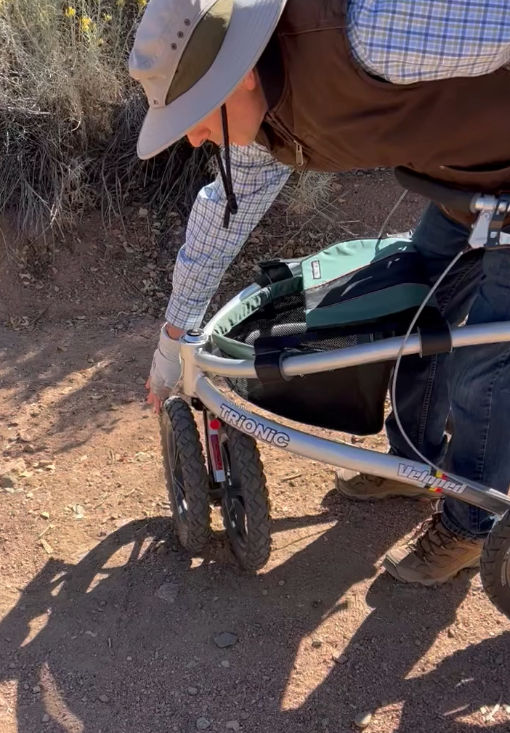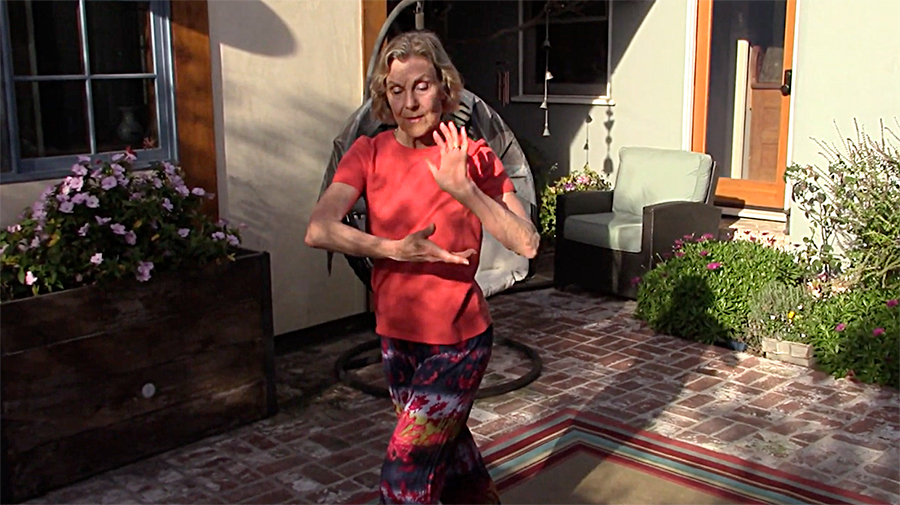Movement Is The Twin Cornerstone of Holistic Cancer Recovery
I purposely did not use the word “Exercise” because there is a wide spectrum of physical ability among cancer patients, according to their age, severity of the cancer, and how they are affected by their treatments.
Nonetheless, it is imperative for cancer patients to MOVE – from the first day of surgery, during recovery from surgery, throughout chemotherapy, radiation, and other treatments; and in recovery.
WHY IS MOVEMENT SO IMPORTANT?
The human body is a miracle of design and function – a system of interlocking parts that work both independently and in conjunction with each other, for the good of the whole.
Prior to a life-threatenIng illness, we might not have paid much attention to our body. Each organ and part functioned automatically, doing the job it was supposed to do. This body of ours carried us from point A to point B. It housed our mind, emotions and spirit. It seemed to repair itself and kept going, despite our unawareness or sometimes neglect. That “period of innocence” ends with a diagnosis of cancer.
Getting cancer is a wake-up call for learning and action!
Cancer destroys or impedes certain organs or parts of the body. Cancer treatments kill cancer cells, while at the same time they kill healthy cells and damage certain adjacent organs and tissues.
The body dynamic is altered and in a state of imbalance. Problems in one area of the body have a cascading effect on the other parts.
As cancer patients, we move from ignorance of our internal organs and body systems, to learning about them on an intimate level. We gather firsthand knowledge of the areas affected by our cancer. We experience the side effects of the cancer treatments.
It is a painful and frightening experience which can cause immobilizing FEAR, anxiety depression.
Holistic Cancer Recovery recommends making a commitment to caring for your body in every way possible – through nutrition, rest, and strength building.
MOVING THE BODY DAILY IS ESSENTIAL
Movement, then, becomes another tool of Self-empowerment.
Once again, you are in the driver’s seat. You take up the gauntlet to love, cherish, and help your body heal, gain strength, rebuild, and rebalance itself. As your body gets stronger through movement, it will release the “feel good chemicals” of endorphins, dopamine, and serotonin – which will enhance your sleep, mood, and inner peacefulness.
Movement will increase blood flow, deliver more oxygen, energize your immune system, aid in the repair of damaged cells and organs, and aid in digestion and the elimination of toxins and waste.
The physical stiffness that results from psychological distress will decrease with movement of the body. Your body will become more flexible, your balance will improve, you will have increased mental and physical energy, a more positive outlook, and enhanced Self-esteem.
As your body becomes stronger and more flexible, so will your mind, emotions, and spirit. We are, after all, a Holistic 4-part person.
Here is an overview of how the need for movement changes during the different stages of cancer treatment and recovery.
Hospitalization For Major Surgery: (5-10 days)
After surgery, you are pretty much in a state of shock. You are receiving big doses of medication and are hooked up to monitors, IV poles, and catheters. The doctors want you up and on your feet the same day as your surgery.
Walk as much as you are able to tolerate in the hospital. Start with one round around your unit, then increase the distance. Each day your stamina and strength will increase. Walking will decrease inflammation and swelling, and enhance your circulation, healing, digestion, appetite and bowel movements.
Resume as much personal hygiene self-care as you can tolerate. This will boost your Self-esteem and moods.
Recovering From Major Surgery: (1 month)
When you go home, accept that your body will be sore and weak for an extended period of time. This is a very fragile time for a cancer patient. Your body has been cut open, parts of your body have been removed. You have incisions, wound dressings, drain tubes, altered functioning of your body.
It is a time of loss, pain, and upheaval. Your world has been turned upside down. You don’t feel like your normal self. Emotionally, you are in shock. You are wondering “Who am I and what is going to happen to me?” It is normal to feel depressed and afraid. You will also experience having an altered role at home: You won’t be as strong as normally. You will have to depend on others to help you during your convalescence.
You may have a loss of appetite – because you are bloated and constipated, sore, cranky, helpless. You may want to stay in bed most of the day – as a refuge. The last thing you want to do is MOVE, yet that is exactly what your body needs in order to heal.
It is a time when COURAGE is needed. Your mind, emotions and spirit must coalesce and help the body to MOVE FORWARD, MOVE TOWARD HEALING, MOVE BEYOND LOSS.
MOVING, at this stage, requires discipline. You do it because you must, not because you want to. This wasn’t an elective surgery; you had to have this surgery because cancer was threatening your life.
And so you begin moving. Take things slowly and get plenty of rest and good nutrition. In the beginning, just walk from one room to the next. Use your bent elbows to support your back as you recline slowly onto your bed. Pivot your body until your legs are close to the ground before you try to stand up. Gradually increase your range of walking by walking around the whole house, then walk for short distances outside.
Don’t be embarrassed if you have a drain tube or catheter. They can be concealed. Also, use a cane or walker if needed or be ok being pushed in a wheelchair. Fresh air and nature will give a lift to your body, mind, emotions and spirit.
Turn on a light when you go to the bathroom at night, to prevent slipping, falls, or bumping into things. Don’t hesitate to ask for help from your family or caregiver.
For pain management, stay “ahead” of your pain by taking pain meds at prescribed intervals and prescribed amounts. Take laxatives, prunes, or products like Metamucil to facilitate bowel movements. These will counteract the constipating effects of medication. Also, drink plenty of fluids throughout the day.
Each day, you will get stronger, less sore, less afraid. This is a time to give yourself a lot of love and admiration. Major surgery is no joke and yet, you are moving forward with your life!
Unbeknownst to yourself, you are in the beginning stage of becoming a WARRIOR!
Chemotherapy: (Several months)
Receiving chemotherapy brings its own set of challenges:
The setting might be a doctor’s office, the hospital, or an Oncology Clinic.
Most often you sit in the waiting room with other patients, then are taken in to have your weight, vitals, and blood draw taken. The blood tests reveal the status of your immune system, your cancer marker number. A determination is made whether your body is able to receive the infusion that day.
You are guided to an infusion chair in a room full of other patients in their chairs. It is very quiet; there is little to no communication between patients. The atmosphere is somber. You feel a sense of loneliness and helplessness.
You watch nurses interacting with patients: setting the IV catheters, starting the anti-nausea drips prior to the infusion. If your body is able to receive chemo that day, a special nurse dressed head to toe in plastic and a face shield carries your special bag of chemo and connects it to your IV, pic or port. No other nurse is allowed to touch your chemo bag.
I asked, “Why not?” and was told by nurses and my Oncologist, “The chemo is highly corrosive and if it touched someone’s skin they would be severely burned.”
As you hear this response, you are thinking “This highly corrosive chemical is being infused into my veins, my blood stream? What the hell is it going to do to me?”
Chemotherapy is a bizarre, frightening experience. The reality is that no one knows for sure how it will affect your body and your immune system. You are told some possible side effects – hair loss or thinning, nausea, fatigue, burning of the feet and hands, neuropathy – but you never know until you have it. Some side effects don’t show up for months.
With all the FEAR and uncertainty, MOVEMENT is an especially important self-care tool that gives your life structure. The day after your infusion and in the time off before your next infusion, running, walking in nature, gentle yoga, meditation and body relaxation, deep breathing exercises, gardening can restore a sense of peace and calmness, and release toxins and stress from your body. They can also help your body heal and strengthen.
Despite the fear and potential side effects of chemotherapy, it is a viable treatment that can save and extend your life. I know many patients in the Pancreatic cancer community who have defied the odds and are 5, 10, 15, 20 year survivors. All of them have had chemotherapy at some point in their journey.
The MOVEMENT Action I am recommending is that you take your time to find an Oncologist and his/her team that will respectfully take care of your body, mind, emotions and spirit. You want a team that will listen to your goals, your fears, your questions, your requests for modifications to your infusion schedule.
You want an expert in the field, well versed and experienced in the nuances of chemotherapy, clinical trials, and other possible treatments. This Oncologist should be concerned with your Whole body and all the other doctors working with you, who will order tests beyond the realm of just cancer. Choose wisely, as the Oncologist will be the doctor with whom you have the longest relationship, especially if you have recurrences. I am blessed to have found this ideal Oncologist when my Pancreatic cancer produced a metastasis in my Liver. Even though I am currently not on chemo, I know he will have my back if I ever need him, and I see him every 2 months for surveillance tests.
FINDING a support group or a cancer community who understand what you are going through, who hug and listen and cry with you on bad days; who encourage and laugh and celebrate being alive with you is a very wise and uplifting MOVEMENT action. It will definitely enhance your recovery and gladden your heart.
Post Treatment Recovery:
Each day, month, year of Post-Treatment recovery is an opportunity to further strengthen your body, mind, emotions, and spirit. Find activities that give you joy. Try a variety of activities: yoga, Qi Gong, Tai Chi, dancing, drumming, gardening, playing cards, building puzzles, running, walking, biking, boxing, meditation, mindfulness practice, singing, writing, creating, weight training, gym membership, hiking, special time with family and friends and pets………….you name it. The possibilities are endless. Joy will extend your life and enhance your Holistic Cancer Recovery.

